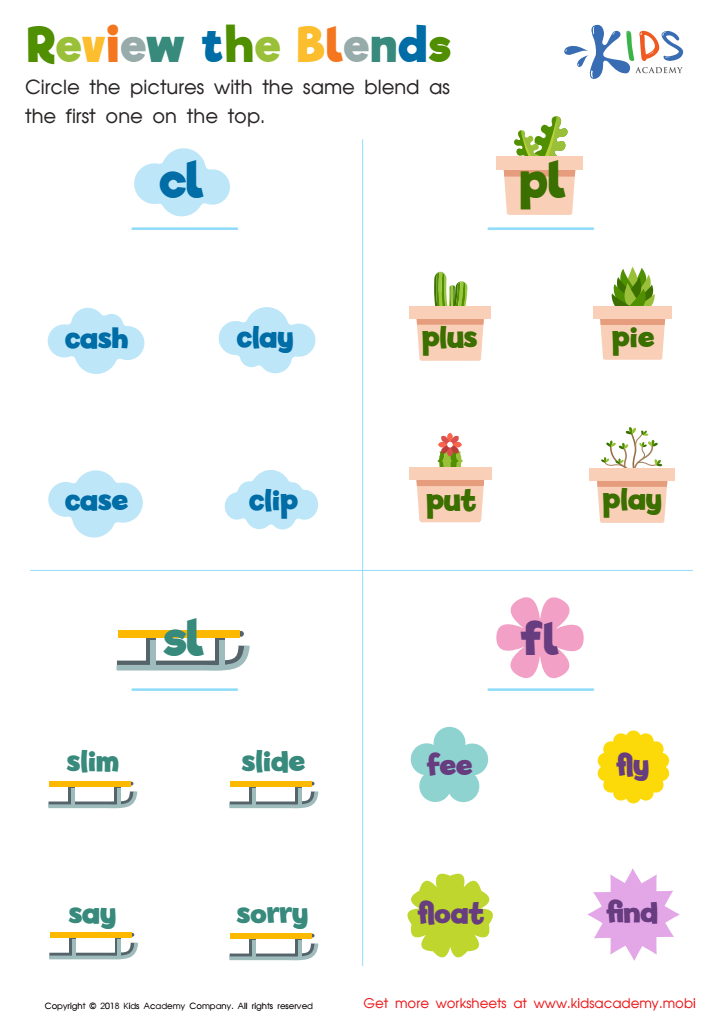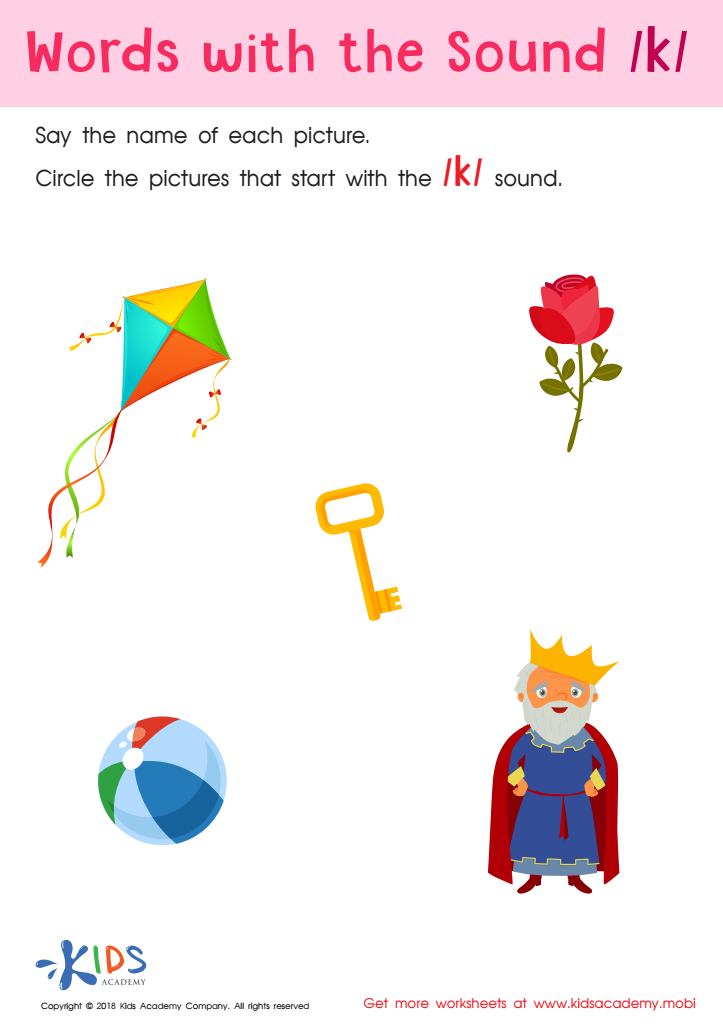Normal Consonants Worksheets for Ages 6-8 - Page 2
26 filtered results
-
From - To


Review the Blends Worksheet


Words with sound k Reading Worksheet
Normal consonants, the basic speech sounds excluding complex sounds or blends, play a critical role in the language development of children aged 6-8. During this age, children are refining their reading and writing skills, making it essential for parents and teachers to focus on these fundamental sounds. Mastery of normal consonants contributes to phonemic awareness, which is crucial for effective decoding when learning to read.
Additionally, a strong grasp of these sounds helps children improve their spelling and comprehension skills. At this stage, students begin to tackle more complex word structures; a solid foundation in normal consonants can significantly enhance their ability to sound out new words and make connections between similar sounds.
Moreover, the oral communication skills developed through practicing normal consonants are vital for effective speaking and social interaction. Children who articulate these sounds clearly are often more confident in expressing themselves and participating in conversations.
Understanding the significance of normal consonants means that parents and teachers can provide targeted support and activities to foster this critical area of language development. Ultimately, nurturing these foundational skills sets the stage for academic success and effective communication in the years to come.

 Assign to My Students
Assign to My Students














